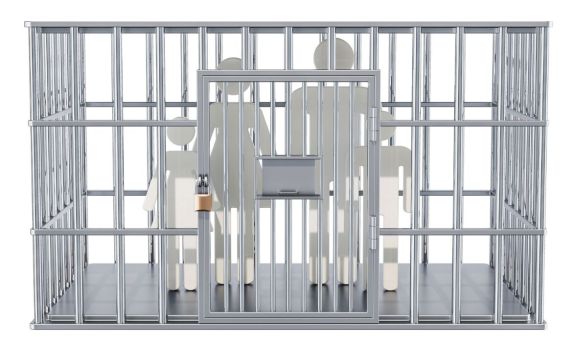The ‘Generational Curse’ Holding Back Children of Incarcerated Fathers
The effects of mass incarceration doesn’t end with the parent

Baker said he started to pay close attention to mass incarceration while an undergraduate student, studying sociology at Wake Forest. He first wanted to be a schoolteacher and was interested in educational inequality.
“There was a lot of talk about the achievement gap in education,” Baker said.
But Baker started to understand that educational inequalities like the achievement gap were part of broader, more systemic inequalities. He became interested in research.
Prior to arriving at Duke for his doctoral studies, Baker from 2016 to 2020 worked as a policy analyst for the RAND Corporation, a nonpartisan, nonprofit think tank that aims to make communities around the world safer, healthier, and more prosperous via research-informed policies.
“Young people who grow up with a father in jail or prison don’t expect as much from their own lives. They don’t dream as big, or believe they’re as worthy as success as people raised in a household without the trauma of an incarcerated parent.”
Garrett Baker
Working at RAND further kindled Baker’s curiosity in the criminal justice system. “Shattered Dreams” was a means to combine educational inequality with the systemic inequality that takes place in criminal justice.
Now in his fourth year of doctoral studies, Baker started writing the paper two years ago, when sociology doctoral students are required to write a second-year paper that relies on their own research.
Baker credits the joint program with providing him a wealth of resources that made the work happen, along with the guidance of one of his academic advisers, sociology professor Christopher Wildeman.
“He helped me a lot from the very beginning,” Baker said about Wildeman, “from research methods, to providing feedback on the early drafts [of the paper], to bouncing ideas back and forth.”
Baker’s work shows the generational curse of mass incarceration that has plagued Black and Brown Americans for decades by considering children’s exposure to crime and the criminal justice system, including their direct and indirect encounters with law enforcement.
Baker says the children of imprisoned fathers endure “a potent life-course disruption” that has intangible consequences.
Baker contrasts those consequences --- the likelihood to marry, attend college, or even live beyond the age of 21 – with “more visible outcomes such as arrests, test scores, GPA, behavior problems, or health issues.”
“That’s really what the paper is about,” he explained. “Intangibles like future-oriented beliefs and attitudes. There’s really very little literature about how encounters with the criminal justice system will impact these expectations.”
Baker’s research shows that youth who experience a father in prison at any point in time are more likely to be non-white and have lower socioeconomic status, a finding consistent with a long line of prior research.
Baker relied on the National Longitudinal Study of Adolescent to Adult Health (Add Health), a nationally representative survey initiated during the 1994-95 school year by scholars at the University of North Carolina at Chapel Hill.
Baker looked at the array of questions asked in the study. They included if the young respondents expected to live past 35, if they expected to marry and whether they expected, wanted, or hoped to go to college.
Baker found the youngsters who had a father in prison when they were adolescents had lower expectations than children who never had a parent who served time in prison.
The Add Health questions asked respondents retrospectively about the age at which they first experienced parental incarceration. Baker used their responses to compare the expectations of those who had already experienced paternal incarceration to those who would later experience it. This, Baker said, “allows for a potentially more rigorous comparison between these more similar groups”.
Using this technique, Baker found children whose fathers had been imprisoned had markedly lower expectations and aspirations for their future.
“I think my paper shows a novel way that mass incarceration has perpetuated inequality in the United States,” he said.
A 30-page study, “Shattered Dreams” received the Gene Carte Student Paper Award from the American Society of Criminology that for the past 40 years has recognized outstanding scholarly work by graduate students.
Baker’s analysis did not explore why this finding occurs.
“If I were to speculate,” he says, “I would say that youth may be internalizing this significant event and all that comes with it—stigma, material hardship, and other stressors—and then are recalibrating their perceptions and mindset about their own social standing and capabilities as a result.”